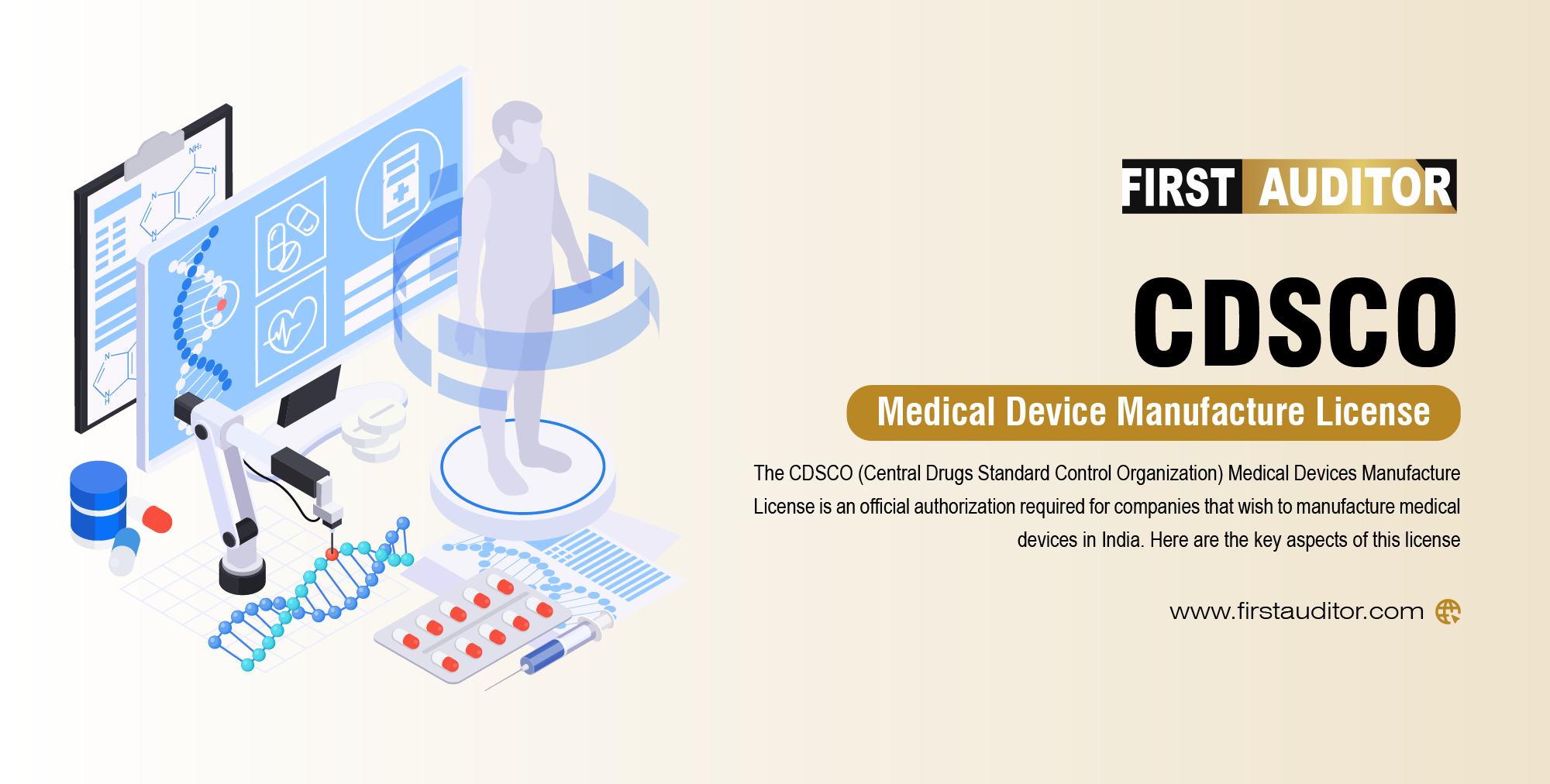The CDSCO (Central Drugs Standard Control Organization) Medical Devices Manufacture License is an official authorization required for companies that wish to manufacture medical devices in India. Here are the key aspects of this license

Class A : Devices that present the lowest risk. These are typically simple devices with minimal potential for harm, such as tongue depressors or bandages.
Class B : Devices with a moderate risk. These may include devices like dental tools and some types of syringes.
Class C : Devices that pose a higher risk. This category includes more complex devices that may require more stringent regulatory oversight, such as certain diagnostic imaging equipment and surgical instruments.
Class D : Devices that present the highest risk to patients. This group includes critical devices such as implantable devices (e.g., stents, pacemakers) and life-supporting or life-sustaining device
Document requirements for CDSCO login credentials:For obtaining a CDSCO Medical Devices Manufacture License, you’ll need to prepare several key documents, including:
Address Proof : This can include:
ID Proof: You’ll need an ID proof of an authorized person who is not part of the management team but will be designated to handle all types of registrations.
Make sure all documents are current and accurately reflect the details of your manufacturing facility and authorized personnel. If you have any more questions or need further clarification, feel free to ask!
CDSCO Manufacturing Test License : The CDSCO Manufacturing Test License is required for the manufacture of small-scale medical devices intended for testing, evaluation, demonstration, and personnel training.
Procedure :
The CDSCO Manufacturing License Application is necessary for the production of medical devices intended for commercial purposes.
Procedure :
Auditing by the Central Drugs Standard Control Organization (CDSCO) is a critical process to ensure compliance with regulatory standards for drugs, clinical trials, and medical devices. Here’s an overview of how the auditing process typically works:
Purpose of Audits
Purpose of Audits
Types of Audits
Preparation for an Audit
Audit Process
Audit Findings
Response to Findings
Continuous Improvement
Regulatory Consequences
Conclusion :
Regular audits help maintain high standards in drug safety and efficacy. It’s crucial for organizations to foster a culture of compliance and quality management to prepare for and respond to audits effectively.
Conclusion :
It’s essential to consult the latest CDSCO guidelines or their official website for the most accurate and up-to-date fee structure related to manufacturing medical devices. Fees can change, and specific requirements may apply based on the type and classification of the device. If you have any specific questions about fees or need further details, feel free to ask
The CDSCO Medical Devices Manufacture License is a mandatory certification issued by the Central Drugs Standard Control Organization (CDSCO) in India. It permits manufacturers to produce medical devices for sale in the country, ensuring compliance with quality, safety, and regulatory standards.
Manufacturers intending to produce Class A, B, C, or D medical devices in India are required to obtain this license. It ensures that their devices meet the safety and quality standards set by the Medical Devices Rules, 2017.
The approval process generally takes around 6 to 9 months, depending on the class of the medical device and the completeness of the application.
No, it is illegal to manufacture medical devices in India without a valid CDSCO license. Violating this can lead to severe penalties, including legal actions and suspension of manufacturing activities.